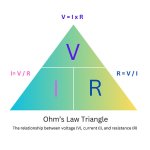quirozjorge633
Recruit
- Joined
- Jun 13, 2025
- Messages
- 3
Hello everyone,
First off, this is my first boat so I'm new to a majority of this stuff, and I have done plenty of research on the topic and have seen so many different opinions on what the better option is which is why I am asking this question again.
The boat I own is a 2002 Reinell, 1 outboard motor only.
I have 2 batteries, (#1 starting and #2 deep cycle) as well as a perko switch (1, 2, both, or off). I took the boat to the stereo shop the other day to get rewired and they put the positive wires from the amps directly to battery #2 (deep cycle). There's are also fuses attached to the cables.
I have seen many people say the positive wires should go to the common switch, as well as others saying directly to the deep cycle battery.
I plan on starting the boat with #1 (starting battery), then switching to both when I go for a ride, and when parked listening to music I'll slap it on #2 (deep cycle).
With given information, is it better to leave as is (directly to battery) or disconnect the positive wires from battery and wire them to the "common" on the switch instead?
Any tips are always useful! Thanks.
First off, this is my first boat so I'm new to a majority of this stuff, and I have done plenty of research on the topic and have seen so many different opinions on what the better option is which is why I am asking this question again.
The boat I own is a 2002 Reinell, 1 outboard motor only.
I have 2 batteries, (#1 starting and #2 deep cycle) as well as a perko switch (1, 2, both, or off). I took the boat to the stereo shop the other day to get rewired and they put the positive wires from the amps directly to battery #2 (deep cycle). There's are also fuses attached to the cables.
I have seen many people say the positive wires should go to the common switch, as well as others saying directly to the deep cycle battery.
I plan on starting the boat with #1 (starting battery), then switching to both when I go for a ride, and when parked listening to music I'll slap it on #2 (deep cycle).
With given information, is it better to leave as is (directly to battery) or disconnect the positive wires from battery and wire them to the "common" on the switch instead?
Any tips are always useful! Thanks.




















